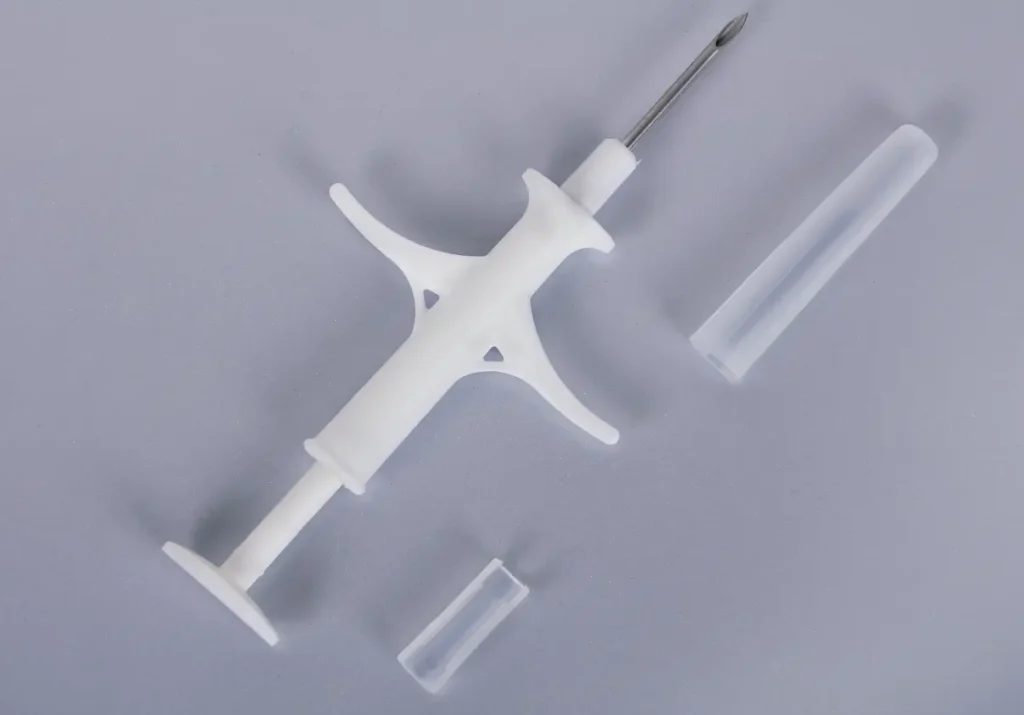Autoimmune diseases are a diverse group of conditions in which the body’s immune system mistakenly turns against its own healthy tissues. More than 80 distinct autoimmune disorders have been identified, affecting everything from the joints and skin to the digestive system and internal organs. These conditions are far more common in women, with about three out of four cases occurring. Whether mild or severe, autoimmune diseases are usually chronic, requiring long-term treatment to keep inflammation under control.
One option that has become a cornerstone in modern care is Cimzia (certolizumab pegol), a biologic therapy approved by the FDA. Cimzia works by blocking tumor necrosis factor-alpha (TNF-α), a powerful driver of inflammation in the body. By targeting this pathway, Cimzia helps patients manage conditions like Crohn’s disease, rheumatoid arthritis, plaque psoriasis, and ankylosing spondylitis, where reducing inflammation is vital for preserving health and quality of life.
In this article, we’ll take a closer look at Cimzia’s approved indications, how it works in the body, and why it has become an important treatment option in the evolving field of autoimmune care.
Key Takeaways
- Cimzia (certolizumab pegol) is FDA-approved for several chronic autoimmune conditions, including RA, PsA, AS, nr-axSpA (with objective inflammation), plaque psoriasis (adults), Crohn’s disease (adults), and pJIA (age ≥2 years).
- It works by blocking TNF-α, a protein that drives inflammation, helping to reduce pain, stiffness, swelling, and digestive or skin symptoms, depending on the condition.
- Rheumatologic indications include relief of joint inflammation and prevention of long-term damage in RA, PsA, AS, and nr-axSpA.
- Gastrointestinal use includes moderating inflammation in Crohn’s disease, inducing remission, and helping maintain long-term disease control.
- Plaque psoriasis patients who qualify for systemic therapy or phototherapy can also benefit from Cimzia’s targeted action.
- Pharmacokinetic studies (CRIB and CRADLE) show minimal placental and breast-milk transfer; use may be considered when necessary, guided by a specialist.
- Careful monitoring, screening, and follow-up are essential for balancing Cimzia’s benefits against potential risks.
About: Medical Spa RX provides medical practices with premium products at the best prices. If you’re looking to buy Cimzia online for your practice, the sales representatives at Medical Spa RX can give you guidance.
Approved Conditions Treated with Cimzia
Cimzia (certolizumab pegol) is FDA-approved for several chronic autoimmune and inflammatory conditions. These diseases share a common thread: persistent immune system activity that damages healthy tissues and impacts daily life.

Adult Indications
- Rheumatoid Arthritis (RA): A systemic autoimmune disease marked by painful joint swelling, stiffness, and progressive damage, often affecting the small joints of the hands, wrists, and knees.
- Psoriatic Arthritis (PsA): A form of inflammatory arthritis associated with psoriasis, leading to painful joints, swelling, and skin plaques that can vary widely in severity.
- Ankylosing Spondylitis (AS): A chronic inflammatory arthritis that affects the spine, causing back pain, stiffness, and in some cases, fusion of the vertebrae.
- Non-Radiographic Axial Spondyloarthritis (nr-axSpA): Inflammatory back pain and stiffness in patients without visible joint changes on X-rays but with objective signs of inflammation on MRI or lab testing.
- Plaque Psoriasis: For adults with moderate-to-severe disease who are candidates for systemic therapy or phototherapy. Cimzia helps reduce scaly, inflamed plaques and improve skin health.
- Crohn’s Disease (CD): A chronic inflammatory bowel disease that affects the digestive tract, leading to abdominal pain, diarrhea, fatigue, and nutritional deficiencies. Cimzia reduces intestinal inflammation and helps maintain remission.
Pediatric Indication
- Polyarticular Juvenile Idiopathic Arthritis (pJIA): Approved for children aged 2 years and older with active disease affecting multiple joints.
These indications highlight Cimzia’s role in improving the quality of life for patients who often require long-term management of immune-mediated disease.
Use of Cimzia in Rheumatologic Disorders
Rheumatologic disorders are among the main areas where Cimzia is prescribed. These disorders involve chronic joint inflammation, pain, and stiffness, often leading to reduced mobility and impaired daily function.
- Rheumatoid Arthritis (RA): Cimzia helps reduce inflammation, slow structural joint damage, and maintain mobility in adults with moderate to severe disease.
- Psoriatic Arthritis (PsA): By targeting both joint and skin inflammation, Cimzia relieves pain, swelling, and psoriasis plaques, offering dual benefits for patients.
- Ankylosing Spondylitis (AS) and nr-axSpA: Cimzia addresses spinal inflammation, easing stiffness and improving flexibility in patients with or without radiographic joint changes.
The goal of treatment with certolizumab pegol, Cimzia’s generic name, is to minimize flare-ups, prevent long-term damage to joints and spine, and help patients maintain independence. When combined with lifestyle adjustments and regular follow-up with a rheumatologist, Cimzia can significantly improve quality of life.
Gastrointestinal Indications for Cimzia Therapy
Cimzia is also FDA-approved for moderately to severely active Crohn’s disease in adults. This form of inflammatory bowel disease causes abdominal pain, diarrhea, weight loss, and fatigue due to persistent intestinal inflammation.

Cimzia can help by:
- Reducing inflammation in the digestive tract, which relieves pain and prevents further tissue damage.
- Inducing remission in patients who have not responded to other therapies.
- Maintaining long-term remission, helping patients avoid frequent flare-ups and the complications of chronic disease.
Cimzia is especially considered when traditional treatments, like corticosteroids or immunomodulators, are not sufficient. Its subcutaneous formulation allows for at-home injection, which can be more convenient for patients needing long-term therapy. Regular monitoring ensures effectiveness while minimizing risks of infection and other complications.
Off-Label and Investigational Uses of Cimzia
While Cimzia’s approved uses are well established, research continues into other immune-mediated conditions.
- Ulcerative Colitis (UC): Cimzia is not FDA-approved for UC, though studies have examined whether it may help reduce inflammation in this form of IBD.
- Uveitis and Systemic Lupus Erythematosus (SLE): Clinical trials are ongoing to explore Cimzia’s potential role in managing these conditions, but they remain investigational.
Patients should only consider any off-label use under the guidance of a specialist, with careful monitoring of response and safety.
Conclusion
Cimzia is a trusted treatment for a wide range of autoimmune and inflammatory conditions, from rheumatologic disorders like RA and PsA to Crohn’s disease and plaque psoriasis. By targeting TNF-α, it helps control inflammation, manage symptoms, and improve long-term outcomes.
Although research is expanding into additional uses, patients should focus on FDA-approved indications unless advised otherwise by their healthcare provider. As with all biologics, careful monitoring is essential to balance benefits against potential risks. For those struggling with chronic inflammation, Cimzia represents a valuable therapy that supports long-term disease management and quality of life.
FAQs
1. What does Cimzia do?
Cimzia treats rheumatoid arthritis, psoriatic arthritis, ankylosing spondylitis, non-radiographic axial spondyloarthritis with objective inflammation, plaque psoriasis (adults), Crohn’s disease (adults), and polyarticular juvenile idiopathic arthritis (pJIA, age ≥2 years).
2. How does Cimzia work?
It blocks tumor necrosis factor-alpha (TNF-α), a protein that drives inflammation in autoimmune diseases.
3. Is Cimzia a long-term treatment?
Yes. Healthcare professionals prescribe Cimzia for the ongoing management of chronic disease. Duration depends on disease control and tolerability, with periodic reassessment by healthcare providers.
4. What are Cimzia’s side effects?
Common side effects include injection site reactions, infections, headache, and fatigue. Serious risks listed in the boxed warning include serious infections (TB, invasive fungal, opportunistic infections) and malignancy. Other important cautions are hepatitis B reactivation, heart failure, and demyelinating disease.
References
Autoimmune diseases. NIAID: National Institute of Allergy and Infectious Diseases. Published March 20, 2025. https://www.niaid.nih.gov/diseases-conditions/autoimmune-diseases
Autoimmune diseases. Fred Hutch Cancer Center. https://www.fredhutch.org/en/diseases/autoimmune-diseases.html
Rosa J, Sabelli M, Soriano ER. Prefilled certolizumab pegol (Cimzia®) syringes for self-use in the treatment of rheumatoid arthritis. Taylor & Francis. Published online August 10, 2010. https://www.tandfonline.com/doi/full/10.2147/mder.s7504
Deeks ED. Certolizumab Pegol: A review in Inflammatory Autoimmune Diseases. BioDrugs. 2016;30(6):607-617. doi:10.1007/s40259-016-0197-y





















